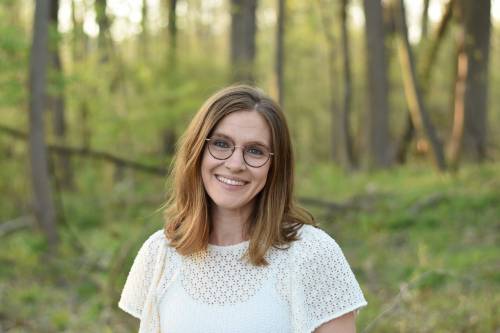
By the rivers of Babylon—
There we sat down, and there we wept
When we remembered Zion …
How could we sing the Lord’s song
In a foreign land?
Psalm 137:1, 4 (NRSV)
What does home mean to you? Home is at the core of a person’s identity. Home is a place of safety, of certainty, of ownership over one’s community. It is a place of belonging, of connection, of tradition, of joy. It is to be rooted. What, then, does home mean when you have been forcibly uprooted? How can you replant your roots in a land disconnected from your culture and tradition? How do you feel safe, experience a sense of belonging? How can you sing the song of your heart in a foreign land?
Over the past year, the evacuation of more than 76,000 Afghans from Kabul and the promise of welcoming 100,000 Ukrainians through the “Uniting for Ukraine” program received increasingly rare bipartisan support. This outpouring of support from across the aisle is a reminder that welcome for the stranger remains a core value in the United States.
In this case, however, welcome comes with a catch.
Instead of utilizing the U.S. Refugee Admissions Program, the United States opted for Afghans and Ukrainians to receive “humanitarian parole” status, granting little to no access to stability and services. This is temporary protection for up to two years without guarantee for further protection; they’d have to find a way to stay, likely through the severely backlogged asylum system.
Being displaced from your home is already a terrible trauma, filled with grief for the land, traditions and communities left behind. Without access to lifesaving services and assurance of stability, that grief and trauma only compounds.
“Welcoming the stranger” is a necessary first step, but the work doesn’t end there. Those with the power and resources must ensure that all who were uprooted find themselves in conditions where they are empowered to begin planting deep new roots. Through cultivating community and ensuring stability, we must do all we can to ensure the new Americans we welcome can find joy singing the songs of their heart in this foreign land.
Action(s):
- Urge your representatives to provide pathways to citizenship for the Afghans and Ukrainians who have fled their countries.
- Advocate for expanding the refugee admissions goal to 200,000 in 2023, fully funding the U.S. Refugee Admissions Program and rebuilding the resettlement infrastructure across the country.
- Connect with your local refugee resettlement agency and learn about how you can connect with local individuals and families seeking community and support as they begin planting roots in the United States.
Prayer: God of the stranger, help us to welcome home those who find themselves displaced from their homes. Infuse in us a sense of radical hospitality for those in desperate need of welcome. Amen.

Emily Wilkes is the mission specialist for Domestic Refugee Ministries with Presbyterian Disaster Assistance. Her previous work has included pastoring, organizing, teaching, writing and storytelling. She loves (mostly gentle) yoga, (mostly experimental) gardening, and reading (mostly through audiobooks). Her current home base is New Jersey where she lives with her spouse, Eric, and rescue pup, Mako.
This year’s Path of Peace reflections are designed to help participants explore peacemaking efforts addressing some of the major issues of our time. The theme for the 29 days of the 2022 A Season of Peace is Led Forth in Peace: Critical Areas of Engagement for Peacemakers. With these daily reflections, we are invited to reflect upon ways to practice peace by engaging the following critical areas:
-
-
- Climate change
- Nonviolence

- The intersection of poverty and racism
- Immigration/migration
-